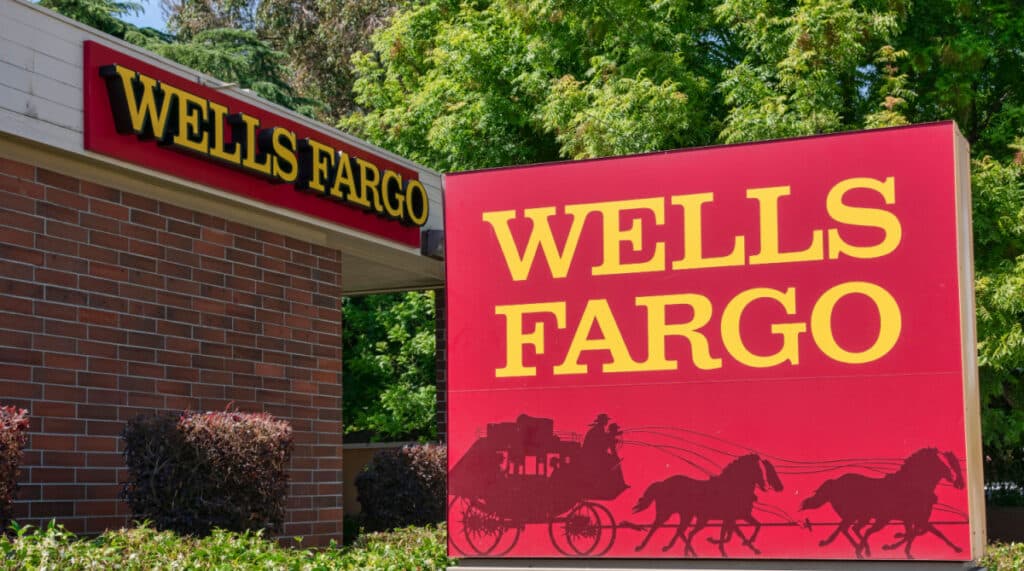Top Class Actions’s website and social media posts use affiliate links. If you make a purchase using such links, we may receive a commission, but it will not result in any additional charges to you. Please review our Affiliate Link Disclosure for more information.

Wells Fargo scams class action overview:
- Who: Wells Fargo is being sued by a group of consumers who were defrauded.
- Why: The plaintiffs say the bank knowingly allowed companies running scams to open bank accounts.
- Where: The Wells Fargo scams class action was filed in a California federal court.
Wells Fargo Bank helped companies it knew were operating “risk-free trial” scams by opening bank accounts for them, a class action lawsuit alleges.
Plaintiffs John McCraner, Sharon Stiansen, Janet Pollard, Michael Darlington, Susan R. Landreau and John N. Tuffield filed the class action lawsuit against Wells Fargo & Co. and Wells Fargo N.A. (Wells Fargo) on July 8, 2021, in a California federal court, alleging they were each defrauded by a company that banks with Wells Fargo.
In an order filed March 30, a California federal judge ruled that the bank must face the claims it assisted companies operating the scams by allowing them to open bank accounts.
U.S. District Judge Larry Alan Burns mostly denied Wells Fargo’s request to dismiss the claims against it, stating that claims that the bank aided and abetted fraud, conspired to commit fraud and violated a California law that bars parties from receiving stolen property could move forward.
He did dismiss one claim under California’s Unfair Competition Law, finding the consumers did not establish the inadequacy of other available legal remedies in the latest version of the complaint.
Wells Fargo knew the companies were breaking the law, plaintiffs allege
According to the plaintiffs, Wells Fargo provided the scam-running businesses with banking services between 2009 and 2018.
Each of the companies allegedly operated online “free trial” scams, promising customers risk-free trials while actually signing them up for expensive subscriptions that would automatically charge their accounts at regular intervals unless affirmatively canceled.
To run these scams, the companies allegedly relied on merchant processing services to charge customers’ credit cards. But the nature of the schemes made continued access to legitimate banking services difficult: as customers challenged the companies’ charges at higher than average rates, merchant processors would be unwilling to work with them, the plaintiffs say.
To conceal their fraudulent activities, the companies created numerous shell companies and opened merchant accounts in these companies’ names, then routed transactions through these shell accounts and cycled funds between accounts if one was shut down, a scheme known as “credit card laundering.”
The principals allegedly hid their personal involvement with the shell companies by recruiting straw owners. According to the plaintiffs, Wells Fargo complied with the companies’ requests for the principals to retain control over the accounts even though they weren’t listed as the account owners.
“During Wells Fargo’s extended relationship with the Enterprises, it received signals that the Enterprises were engaging in misconduct,” the lawsuit alleges. “Wells Fargo knew that the enterprises were defrauding the merchant processors through the use of unlawful tactics like credit card laundering, among others,” the lawsuit states. As a result, they are seeking damages, fees, costs and a jury trial.
Meanwhile, Wells Fargo recently agreed to a $3.75 million settlement to resolve a class action lawsuit claiming it facilitated an Equitybuild Ponzi scheme that cost consumers millions.
What do you think of the claims against Wells Fargo? Let us know in the comments!
The consumers are represented by Lionel Z. Glancy, Jonathan M. Rotter and Garth A. Spencer of Glancy Prongay & Murray LLP.
The Wells Fargo class action lawsuit is John McCraner, et al. v. Wells Fargo & Co., et al., Case No. 3:21-cv-01246, in the U.S. District Court for the Southern District of California.
Don’t Miss Out!
Check out our list of Class Action Lawsuits and Class Action Settlements you may qualify to join!
Read About More Class Action Lawsuits & Class Action Settlements:















12 thoughts onWells Fargo class action claims bank assisted companies with fraudulent ‘risk-free trial’ scams
I am in charge of a corporate account that is a 501 C-3. There are two signers on the account and Wells assured us at its opening that only we could transact in the account. There were a total of eight fraudulant ACH transactions totaling $33540. They would only cover loss on 2 of the tranactions claimng that the others were not reported on a timley basis. The remaining amount is $28229 will have to be a suffered loss for the charitible donors of our enterprise. There are long periods in this account of non activity thus the reason for not picing the fraud sooner. Other banks notify customers on unauthorized transactions Wells did not. Would this fit into your lawsuit ?